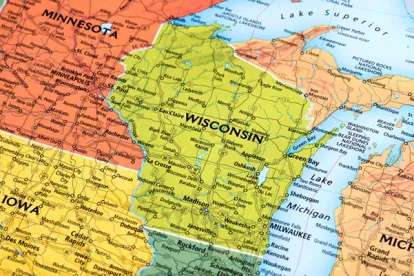During the past three years, the Wisconsin Department of Natural Resources (DNR) has been engaged in a massive project rewriting the agency’s hazardous waste rules. The effort involves approximately 3,000 changes and the rule package is 700 pages long. The rewritten rule package was signed by the DNR Secretary and filed with the Legislative Reference Bureau on May 12, 2020, and is now awaiting final approval by the Wisconsin State Legislature.
NEW STORAGE AREA CLOSURE REQUIREMENTS FOR LQGS
While there are numerous changes to the hazardous waste rules in this package, a new large quantity generator (LQG) requirement for closing hazardous waste storage areas deserves special attention. LQGs enjoy an exemption from permitting the storage of hazardous waste as long as such storage meets applicable handling, labeling and other related requirements for identified areas and the storage in these areas does not exceed 90-days. The new rule package, for the first time, establishes closure requirements for these LQG storage areas when storage ceases at the facility.
New closure requirements include the following:
-
The generator must notify the U.S. Environmental Protection Agency (EPA) and DNR at least 30 days prior to closing the facility.
-
Within 90 days after closing, the facility must establish compliance with new clean closure standards for such facilities. See sec. NR 662.017(1) (h) 3 and 4.
-
If a facility cannot meet these new clean closure standards, it must notify EPA and DNR that it will close as a landfill under sec. NR 665.0310 for used for container area, tank or containment building.
There is no specific guidance that provide greater clarity for the new clean closure standards. DNR plans to adopt a guidance document in the future that provides greater clarity for meeting these standards.
The new clean closure requirement when facilities are closed can create significant liability and cost concerns for buyers and sellers in transactions involving the sale of closed facilities. For these reasons, this new requirement should gain special attention in industrial real estate transactions.
FIVE ADDITIONAL SIGNIFICANT CHANGES TO THE HAZARDOUS WASTE RULES
Beyond the new LQG requirements, the rewritten hazardous waste rules also include these five significant changes:
-
The rules clarify the burden placed upon the waste generator to use acceptable knowledge in making a determination about whether a waste stream constitutes hazardous waste and is subject to these rules (Acceptable Knowledge Requirement). See revised sec. NR 662.011(1).
-
The Acceptable Knowledge Requirement must be based upon relevant, reliable and verifiable information and must be documented in an organized and logical way in the generator’s records. See revised sec. NR 66011(3).
-
When there is insufficient information available to meet the Acceptable Knowledge Requirement, the generator must test the waste in accordance with detailed sampling methods described in greater detail in Subchapter C of Chapter NR 661 or equivalent sampling methods approved under sec. 660.0021. The requirements include the need for representative sampling of the waste stream to make the property hazardous waste determination. See revised sec. NR 662.011(4)(b).
-
The generator must establish records that demonstrate and support the generator’s determination of proper waste characterization. See s. NR 662.011(6).
-
State inspectors are empowered to require a generator to perform a waste determination to support a previous determination made by the generator that the waste in question is not hazardous. See 81 F. Reg. 85753.
All of the waste generation characterization requirements can be traps for the unwary generator should state or federal inspectors second guess such determinations during site inspections.
UNDERSTANDING DNR’S REWRITTEN RULES IS CRITICAL
DNR’s rewritten hazardous waste rules are complex and significant and, at 700 pages, cannot be adequately summarized. It is critical that hazardous waste generators review and understand these rules to ensure compliance.



 />i
/>i

